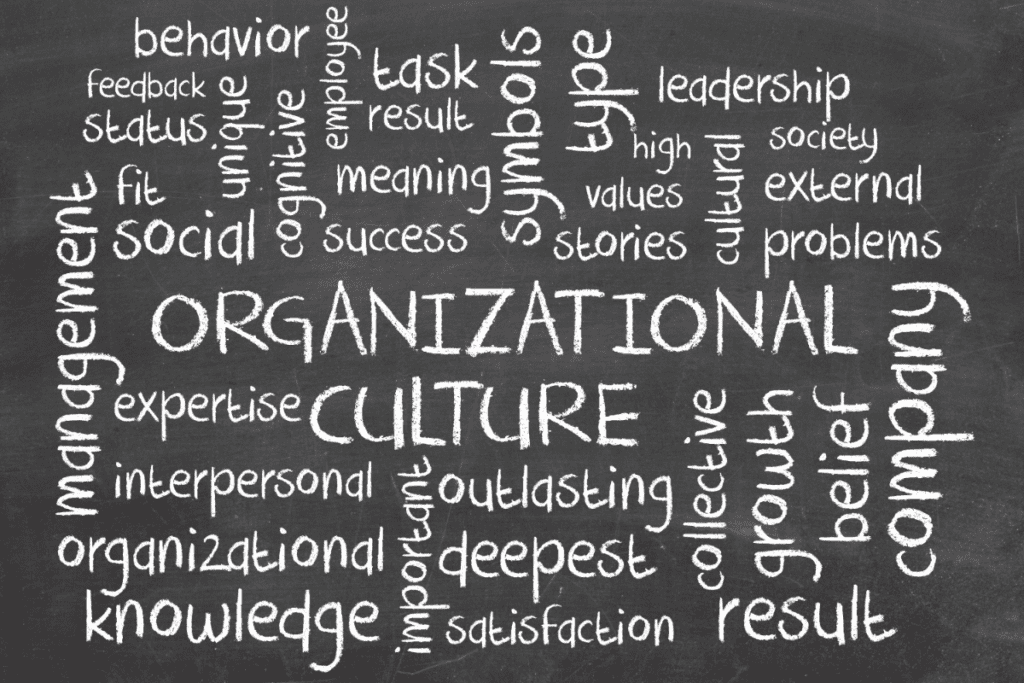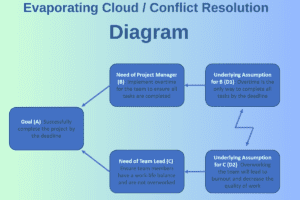Culture Matters: How Organizational Culture Affects Project Management?
Culture plays a significant role in all aspects of an organization. Organization Culture Affects Project Management and refers to the values, beliefs, and behaviors that shape the way people work together within a company.
It influences decision-making, communication, and ultimately, the success of projects. In this article, we will explore the impact of organizational culture on project management and discuss how project managers can leverage culture to improve project outcomes.
What is the impact of organizational culture on project management?
Organizational culture can impact project management by influencing collaboration, communication, and accountability. A positive culture can help ensure project success.
How does the organizational culture influence project success?
The organizational culture has a direct impact on project success. A positive and supportive culture encourages collaboration, innovation, and creativity among team members. It promotes open communication, information sharing, and transparency, leading to better project outcomes.
On the other hand, a negative or toxic culture can hinder project success by creating conflicts, resistance to change, and poor teamwork.
What is the relationship between organizational culture and project management?
The relationship between organizational culture and project management is intertwined. Organizational culture sets the tone for how projects are managed within the company. It influences the expectations, priorities, and behaviors of project managers and team members. A culture that values efficiency, adaptability, and continuous improvement is more likely to adopt effective project management practices and methodologies.
How does corporate culture affect project outcomes?
Corporate culture has a significant impact on project outcomes. A strong and positive corporate culture promotes shared goals, values, and commitment to project success. It fosters an environment where team members feel empowered, motivated, and accountable for their work.
However, a weak or negative corporate culture can lead to poor project outcomes, as it undermines collaboration, commitment, and overall project performance.
What is project management culture?
Project management culture is the shared set of values, beliefs, and norms that influence how projects are managed within an organization. It can have a significant impact on project success.
How does project management culture differ from organizational culture?
While project management culture is influenced by the broader organizational culture, it has its own unique elements. Project management culture refers to the specific values, norms, and practices that guide project management activities within an organization. It includes aspects such as project planning, risk management, communication, and stakeholder engagement.
Project management culture may vary across organizations based on their industry, size, and project management methodologies employed.
What are the key elements of project management culture?
The key elements of project management culture include clear project goals and objectives, effective communication, collaboration, accountability, and a focus on continuous improvement.
A project management culture should also encourage learning, adaptability, and a proactive approach to addressing challenges. It should promote a sense of ownership and commitment among project team members, fostering a positive and productive project environment.
How can a project manager create a positive project management culture?
A project manager plays a crucial role in creating a positive project management culture. They can lead by example and demonstrate the desired behaviors and values. A project manager should prioritize effective communication, encourage teamwork, and provide opportunities for professional development. They should also promote a culture of recognition and reward for project achievements, fostering a positive and motivated project team.
How does organizational culture affect the project team?
Organizational culture influences team dynamics, collaboration levels, and overall morale. Positive cultures boost cohesion and productivity, while negative ones can lead to discord and inefficiencies.
What types of organizational culture can influence the project team?
Different types of organizational culture can affect the project team in various ways. For example, a hierarchical culture may create a top-down decision-making process, limiting the autonomy and creativity of team members. In contrast, a collaborative and innovative culture encourages active participation, creativity, and problem-solving among team members. The culture shapes the level of trust, communication, and collaboration within the project team.
How does the organizational culture impact the behavior and performance of team members?
The organizational culture has a direct impact on the behavior and performance of team members. A positive and supportive culture encourages team members to take ownership, be proactive, and collaborate effectively. It fosters a sense of belonging, motivation, and commitment to project success. On the other hand, a negative or toxic culture can result in demotivated team members, conflicts, and suboptimal performance, leading to project delays or failures.
What can project managers do to align the project team with the organizational culture?
Project managers can play a crucial role in aligning the project team with the organizational culture. They should communicate the cultural values, goals, and expectations to the team members. Project managers should encourage open communication, collaboration, and decision-making based on the cultural norms.
They can also provide training and development opportunities to enhance team members’ understanding of the organizational culture and promote its integration within the project team.
What is the importance of culture for project success?
Culture influences influences how teams collaborate, communicate, and innovate. A positive culture can help teams overcome challenges and achieve their goals, while a negative culture can lead to delays and failures.
How does culture contribute to project success?
Culture contributes significantly to project success. A positive and supportive culture fosters teamwork, open communication, and collaboration, leading to effective problem-solving and decision-making. It creates an environment where team members feel empowered, motivated, and committed to achieving project goals. A strong culture also facilitates the adoption of project management best practices and methodologies, enhancing project outcomes.
What are the key factors to consider in creating a project culture?
Creating a project culture requires considering several key factors. Firstly, project managers should align the project culture with the broader organizational culture. They should define clear project goals, values, and expectations and ensure that they are communicated effectively to all team members.
Project managers should also promote a culture of trust, accountability, and continuous learning. Lastly, project managers should create a supportive environment that encourages collaboration, creativity, and innovation among team members.
How can project managers leverage culture to improve project outcomes?
Project managers can leverage culture to improve project outcomes by actively incorporating cultural values and norms into project management practices. They can align project planning, decision-making, and communication processes with the prevailing culture. Project managers should promote a culture of learning, reflection, and continuous improvement by encouraging feedback and implementing lessons learned from previous projects. By leveraging culture, project managers can enhance teamwork, productivity, and ultimately, project success.
 How can project managers integrate organizational culture into project management methodology?
How can project managers integrate organizational culture into project management methodology?
Project managers can integrate organizational culture into their methodology by understanding the organization’s culture, aligning project goals with cultural values, promoting communication practices that reflect the organization’s norms, and adapting management techniques to resonate with the prevailing culture.
What are the best practices for incorporating organizational culture into project management processes?
Integrating organizational culture into project management processes requires adopting best practices. Project managers should involve key stakeholders in defining project goals and requirements, ensuring alignment with the cultural values and priorities. They should also review and adapt project management methodologies to reflect the prevailing organizational culture. Project managers can incorporate cultural considerations into risk management, communication plans, and decision-making processes, promoting cultural alignment throughout the project lifecycle.
How can project managers align the project management methodology with the prevailing organizational culture?
Project managers can align the project management methodology with the prevailing organizational culture by integrating cultural considerations into every stage of the project. They should ensure that project planning, execution, and monitoring processes reflect the cultural values, norms, and expectations. Project managers should also provide training and support to team members, enabling them to understand and embrace the cultural dimensions of project management. By aligning the project management methodology with the organizational culture, project managers can enhance project outcomes and stakeholder satisfaction.
What are the potential challenges in integrating organizational culture into project management?
Integrating organizational culture into project management can pose several challenges. One challenge is the resistance to change, as project team members may be accustomed to existing project management practices and reluctant to embrace new cultural norms. Limited resources and time constraints can also impede the integration of culture into project management processes. Project managers should be mindful of these challenges and proactively address them through effective communication, stakeholder engagement, and training initiatives.
How Can We Assess and Measure Organizational Culture?
Understanding and gauging the pulse of an organization’s culture is pivotal for its growth and success. By assessing and measuring organizational culture, leaders can identify areas of strength and pinpoint aspects that may need refinement or change.
What Tools and Techniques Are Essential for Cultural Assessment?
Several tools and methodologies are available to assess organizational culture. Surveys and questionnaires, for instance, can provide quantitative data about employee perceptions and beliefs. Focus groups and one-on-one interviews offer qualitative insights into the nuances of the workplace culture. Additionally, observational methods, where behaviors and interactions are noted, can provide a more holistic view of the day-to-day culture. It’s essential to choose a method that aligns with the organization’s goals and the specific aspects of culture being examined.
Why Are Regular Cultural Audits Important?
Regular cultural audits are crucial as they provide a consistent and periodic check on the health and vibrancy of an organization’s culture. As companies evolve, so do their cultures. Regular audits ensure that the culture aligns with the organization’s values, mission, and strategic goals. They also help in identifying potential issues before they become significant challenges, ensuring that the organization remains adaptive and resilient in the face of change.
How Does Training and Development Influence Organizational Culture?
Training and development play a pivotal role in shaping and reinforcing an organization’s culture. They provide employees with the skills, knowledge, and behaviors aligned with the company’s cultural values and objectives.
How Does Training Reinforce Desired Cultural Traits?
Training programs, when designed with the organization’s cultural values in mind, can reinforce and promote desired cultural traits. For instance, if an organization values collaboration, team-building exercises and collaborative project training can instill and reinforce this trait among employees. Training becomes a platform where employees not only learn new skills but also internalize the cultural values of the organization, ensuring that they exhibit these values in their daily tasks and interactions.
How Does Continuous Learning Impact Cultural Evolution?
Continuous learning promotes a culture of adaptability, innovation, and growth. In today’s fast-paced world, organizations that foster continuous learning are better equipped to adapt to changes, be it technological advancements or market shifts. By promoting a culture where employees are encouraged to learn and grow continuously, organizations ensure that their culture remains dynamic, relevant, and aligned with the evolving business landscape.
How Does Continuous Learning Impact Cultural Evolution?
Continuous learning is pivotal in today’s ever-evolving business environment. It not only drives individual growth but also shapes the broader organizational culture. By embedding continuous learning into their core values, organizations signal a commitment to innovation and progress. This approach fosters adaptability, resilience, and a forward-thinking mindset among employees.
Organizations that prioritize continuous learning are better equipped to navigate industry changes. They remain innovative, as employees consistently explore new methodologies and ideas. Such a culture attracts top talent, offering an environment where growth and development are paramount.
Conclusion
Organizational culture is the backbone of successful project management. By understanding and harnessing the power of culture, organizations can foster collaboration, drive innovation, and achieve outstanding project outcomes. As the business landscape evolves, a commitment to continuous learning and adaptability will ensure that companies remain resilient and thrive in any challenge they face.
If you liked this article, remember to subscribe to MiamiCloud.com. Connect. Learn. Innovate.








